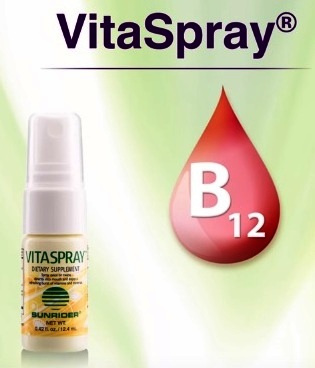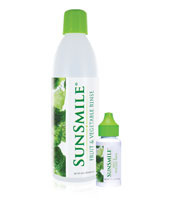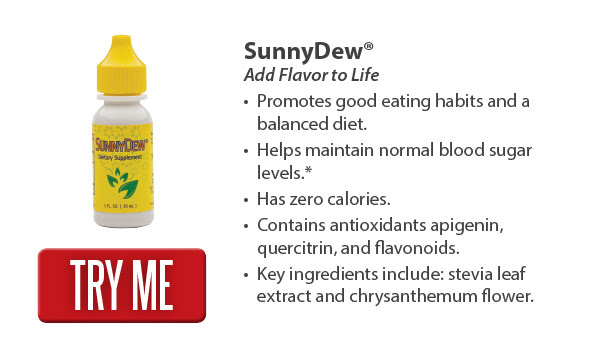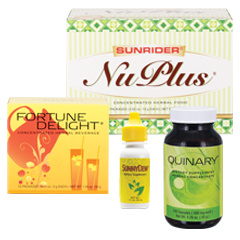By Jane Wak efield and Sherry Jones
efield and Sherry Jones
Do Americans really get parasites?
Well of course we do! As gross as it may seem, the majority of us have parasites. You may not think it so, since we can live our lives free from the symptoms or suffer the results of parasitic infestations. However, many do suffer unknowingly.
The symptoms vary from anemia, fever, joint pains, muscle pains, vomiting, liver problems, lung problems, rash, convulsions, colitis, low blood sugar, fatigue, swollen lymph glands (that can mimic tumors), allergies, restlessness, diarrhea,dry cough etc. Parasites have to eat, so they rob us of our nutrients and poison us with their toxic waste. They travel through our bodies and puncture our intestines and organs to do so! Ouch! It is very hard to diagnose parasites since most laboratories do not specilize in parasite detection.
So what is a parasite? A parasite is an organism that derives its food, nutrition and shelter by living in or on another organism. In biology the parasitic way of life is very common. There are more organisms in the world that lives as parasites, than organisms that live otherwise. Due to the increase in world travel, parasites show no socioeconomic boundaries and may be found in all climates.
We will consider the 5 different groups of parasitic invaders:
1. Roundworms
2. The Single Cell Parasites
3. The Tapeworm Family
4. The Flukes Invaders
5. Spirochetes
Roundworms
 Symptoms to look for when roundworms are involved:
Symptoms to look for when roundworms are involved:
• Grinding of teeth at night
• Intestinal gas
• Allergies
• Asthma
• Snoring
• Digestive disturbance
• Anemia
• Restlessness
• Weight gain around the full moon (sometimes 7-8 pounds)
Roundworms are common around the world, especially in warmer climates. Twenty-five percent of the people in the world are thought to be infected. In the southeastern prts of the U.S. up to 64% of the people may carry this parasite. These worms are large, about the size of a pencil. Each worm may release a foreign protein, which will cause the host to have an allergic response. Infected individuals may experience abdominal pain, lung infections, eye infections, blood sugar imbalance, weight loss and fatigue. Interestingly, roundworms create their own hydrogen peroxide so that their offspring will be plentiful and one female worm may release 200,000 eggs per day. Ugh!
Hookworms drink large amounts of blood each day. People with this parasite show signs of anemia, malnutrition, listless, mentally slow, weak and lazy. We can get infected through:
• Eating fruits and vegetables not properly washed.
• Walking barefoot in contaminated soil and gardening in contaminated soil. These worms burrow into the skin, then they cause an allergic reactionmarked by blisters and itchy skin. From the skin
they make their way through the body. It has been said that 2 cups of strong Thyme Tea followed by a dose of Epsom salt can help expel them! It is food for thought!
Whipworm is very common, especially in children. The worm is small, thin and about 3-5 centimeters long. They are very toxic and heavy infections show appendicitis, prolapse and edema of the rectum and damage to the intestinal wall.
The Toxocara Worm of cats and dogs infect humans, especially children, due to their playing habits and unsanitary habits around pets. Almost all puppies and kittens are infected,so be careful handling and cleaning up after animals. These worms can go to the eyes to cause inflammation and blindness. Symptoms are fever, joint pains, muscle pains,rash, convulsions, liver or lung problems.
Pinworms are common all over the United States and very contagious. The worms are very small and white. They live in the intestines and the female may crawl several inches out of the anus to lay from 5,000 or more eggs in one night. Eggs are light and can be carried in the air infecting sheets, clothes, walls and carpets for weeks. Children infected may show digestive disturbances, nervousness, insomnia and itching around the anus. Preparing an enema with fresh garlic in a blender with purified water may be helpful when infected. Dog Heartworm is becoming increasingly common in humans. In man it lives in the heart and blood vessels and the lungs causing a cough and chest pain. It can cause blockages of the blood vessels, damaging organs. It can also be transmitted through the bite of a mosquito.
Do you eat meat? Humans should be careful when eating meat as any meat-eating animals may be infected with Trichinosis (Trichinella sprialis.) Be careful when eating pork, even a small taste of undercooked sausage can lead to a huge infection. Cooking pork in a microwave does not assure the cysts have been killed. Pork should be cooked until there is no pink left in the meat!
Protozoa
Protozoa are microscopic single celled animals. More people are killed or harmed by protozoan infections than by any other type of parasitic disease. They are found everywhere in our environment. A healthy immune system keeps the organisms under control. There are a wide variety of protozoa:
1. Pneumocystis-infects the lungs of young children and Aids patients.
2. Cryptosporidium-infects the drinking water supply of most cities.
3. Sarcocystis-infects muscle tissue while releasing the toxin sarcocystin.
4. Giardia-infects small intestines and gall bladder.
5. Ameba-infects all areas of the body including the gums.
6. Trichomona Vaginalis-lives in the vaginal area and urinary tract of females and the prostate, seminal vesicals and urinary tract of males.
Toxoplasmosis, a common protozoa, can be acquired through mammals, birds, under-cooked meats or being in contact with contaminated areas such as cat litter boxes or sand boxes where cats have defecated. The presence of these protozoa in the body represent the source of constant antigenic stimulation believed responsible for rheumatoid diseases as well as myelomatasis and lymphomata! It even causes depression! Arthritis, asthma, colitis, diabetes, elevated white blood cell count, Hodgekins, Leukemia, Lymphoma, Ovarian cysts, Psoriasis, Pyorrhea, and Multiple Sclerosis may be associated with protozoan infections.
Tapeworms
Tapeworms are long, flat, ribbon-like creatures who do not have a digestive system so they absorb nutrients through their skin. They absorb our nutrients, especially vitamin B-12 and folic acid, and give off dangerous waste products. There are different types ranging from 1 to 30 feet in length. The "Broad Fish" Tapeworm usually the longest can be aquired through eating raw or under cooked fish. Children who are infected show disturbed sleep, grinding of the teeth and intestinal disturbances. An old wives tale states; that if you have tapeworms you can see it on the bottom of your foot, a line across the middle section of both feet are noticeable! Who knows if this is true! But it will make you look!
Tapeworms can make:
1. Mineral Imbalance
2. Thyroid Imbalance
3. Intestinal gas, bloating
4. High & Low blood sugar
5. Fluid retention during full moon
6. Jaundice
Flukes
Flukes are flat worms that have two ventral suckers that allow them to attach to their hosts. There are many different species of flukes, grouped into four types, which are: liver flukes, blood flukes, lung flukes and intestinal flukes.
Humans usually become infected through eating raw or under-cooked fish or crab, eating infected vegetarian like water chestnuts, caltop, watercress, or drinking or wading in infected water.
1. Liver flukes-cause jaundice & swelling of the liver.
2. Lung flukes-weaken lungs & attract other illnesses such as pneumonia.
3. Blood flukes-cause adults to have blood clots & take up certain amino acids, especially argenine, from the blood causing a protein imbalance.
Spirochetes
Spirochetes are tiny bacterium, which are spiral-shaped and are responsible for many human diseases such as relapsing fever, infectious jaundice, sores and ulcers. In Vincent angina, spirochetes are found to be the main cause. Lyme Disease and Wyles are from spirochetes. Antibiotics can be very effective in killing some forms of spirochetes. The most important factor coming from the research of scientists is that spirochetes are:
1. Widespread.
2. difficult to diagnose.
3. can attach to Candida albacans, Epstein Barr, or run down conditions as in AIDS, cancer and immune deficient diseases.
4. Spirochetes multiply in the blood and lymphatic system.
5. Can lay dormant for a long time and then activate in situations of stress.
What do we do if we have parasites?
The first thing we do is to consult our medical physician. Many buy from the local health food store herbal preparations to kill parasites. These formulas are called "vermafuges". Warning! These herbal formulas are natural poisons and should be taken under the supervision of skilled Healthcare Practitioners for short-term use only. Be Careful! Prevention is always the best medicine!
How to Prevent Parasitic Infestations:
Personal hygiene is of top importance. Washing our hands after touching pets and dirt is the best habit to form and teach to our children. Be careful walking barefoot on contaminated soil or carpets. Wash all your fruits and vegetables with a fruit & vegetable rinse. Just rinsing our vegetables in tap water does not kill the parasites or neutralize the pesticide on them! One little capful of the Sunsmile Fruit & Vegetable Rinse in one gallon of water can wash all your food for the week!
• They hate a balanced pH in the intestinal tract; so drink plenty of Chlorophyll. When under a parasitic infection, keep the intestines slightly acidic with apple cider vinegar or cranberry juice. Make your own salad dressing with Apple Cider vinegar.
• Constipation invites p arasites. Lack of gall bladder output invites them also. Drink plenty of water and use the Sunbar or Fibertone, high fiber formulas that encourage the gall bladder to produce more bile for bowel lubrication.
arasites. Lack of gall bladder output invites them also. Drink plenty of water and use the Sunbar or Fibertone, high fiber formulas that encourage the gall bladder to produce more bile for bowel lubrication.
• Parasites hate digestive enzymes and hydrochloric acid: so eat whole foods and enzyme rich foods (NuPlus) and drink fresh lemon in water at meal time so your body produces hydrochloric acid for better digestion.
Foods to avoid are:
1. Raw or undercooked beef, pork, fish and chicken
2. Sugars and simple carbohydrates.
3. unfiltered water.
4. Water chest nuts & Watercress.
nuts & Watercress.
Foods to Rebuild the Body
• Vitafruit: has vitamin A, minerals and herbals for tissue repair
• VitaSpray: has vitamin B's and B12
• Evergreen liquid Chlorophyll: repairs tissue and rebuilds blood
• Vitadophilus: good bacteria for the colon wall
• Fresh garlic and pumpkin seeds are historically known to keep parasites away. Figs and Pomegranates have also been known to help.
SunSmile Fruit & Vegetable Rinse
There really is no product equal to SunSmile Fruit & Vegetable Rinse. It uses naturally-derived ingredients to clean fruits and vegetables of herbicides, pesticides, fungicides, dirt, waxy coatings, oily substances and other undesirable substances. The primary cleansing agent is decyl polyglucose, a biodegradable surfactant derived from corn starch and coconut oil.








